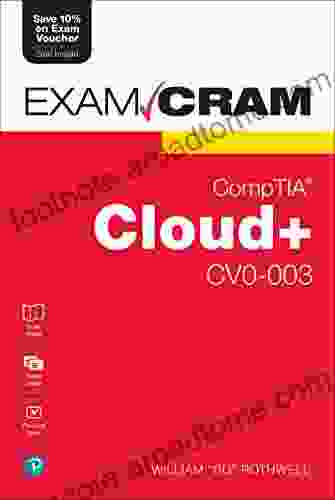Motivational Interviewing in Groups: A Path to Empowerment and Transformation

In a world where challenges abound, the pursuit of personal growth and positive change can often feel daunting. However, the emergence of Motivational Interviewing (MI) has provided a beacon of hope for those seeking to empower themselves and achieve lasting behavioral modifications. MI is a collaborative, person-centered counseling approach that has gained widespread recognition for its effectiveness in facilitating behavior change across a diverse range of populations.
4.7 out of 5
| Language | : | English |
| File size | : | 1933 KB |
| Text-to-Speech | : | Enabled |
| Screen Reader | : | Supported |
| Enhanced typesetting | : | Enabled |
| Word Wise | : | Enabled |
| Print length | : | 433 pages |
While traditional MI typically involves one-on-one interactions between a counselor and a client, the application of MI principles within group settings has opened up exciting new possibilities for fostering self-empowerment and transformative change. Motivational Interviewing in Groups (MIG) leverages the power of group dynamics to create a safe, supportive, and engaging environment where individuals can explore their motivations, develop coping mechanisms, and embark on a journey of profound personal growth.
The Principles of MIG
MIG is rooted in the core principles of MI, which emphasize empathy, collaboration, and the elicitation of client motivation. Within a group setting, these principles are adapted to foster a sense of community and shared purpose, while still maintaining a focus on the individual needs and goals of each participant.
- Empathy: MIG facilitators demonstrate empathy and understanding towards each group member, creating a non-judgmental and supportive atmosphere where individuals feel safe to share their experiences and struggles.
- Collaboration: MIG is a collaborative process in which the facilitator and group members work together to identify goals, develop strategies, and support each other's efforts towards change.
- Elicitation of Client Motivation: MIG facilitators use skillful questioning and reflective listening to elicit and amplify the intrinsic motivation of group members, empowering them to take ownership of their change journey.
Techniques in MIG
MIG employs a range of techniques to facilitate behavior change within group settings. These techniques are designed to promote self-reflection, enhance motivation, and build resilience.
- Open-Ended Questions: MIG facilitators use open-ended questions to encourage participants to explore their thoughts, feelings, and experiences. This helps to build rapport, elicit client motivation, and create a sense of shared understanding.
- Reflective Listening: Through active listening and paraphrasing, facilitators reflect back what they hear from group members, ensuring that their perspectives are understood and valued. This helps to build trust, foster empathy, and promote self-awareness.
- Goal Setting: MIG facilitators guide group members through a process of setting specific, achievable, and relevant goals for change. This provides a clear direction for the group's work and helps to maintain motivation.
- Self-Efficacy Enhancement: MIG techniques are designed to enhance participants' belief in their ability to make positive changes. This is achieved through positive feedback, encouragement, and the sharing of success stories.
Applications of MIG
MIG has been successfully applied in a wide range of settings to address various behavioral health concerns, including:
- Substance Abuse: MIG has been shown to be effective in reducing alcohol and drug use, as well as in promoting abstinence.
- Mental Health: MIG has been used to improve outcomes for individuals with anxiety, depression, and other mental health conditions.
- Weight Management: MIG has been found to be helpful in promoting healthy eating habits and weight loss.
- Chronic Disease Management: MIG has been used to improve adherence to treatment plans and self-management skills in individuals with chronic diseases such as diabetes and HIV.
Benefits of MIG
Participating in MIG offers a multitude of benefits for individuals seeking positive change, including:
- Enhanced Motivation: MIG helps individuals to identify and strengthen their own motivation for change, leading to increased commitment and sustained effort.
- Improved Self-Efficacy: MIG fosters a sense of self-belief and empowers individuals to trust in their ability to achieve their goals.
- Reduced Resistance to Change: MIG's collaborative approach minimizes resistance to change and helps individuals to embrace new behaviors and perspectives.
- Increased Social Support: MIG provides a supportive and non-judgmental environment where individuals can connect with others who are also working towards positive change.
- Cost-Effective: MIG is a cost-effective intervention that can be implemented in a variety of settings, making it accessible to a wide range of individuals.
Motivational Interviewing in Groups is a transformative approach that empowers individuals to take control of their lives and make lasting positive changes. By fostering a safe, supportive, and engaging environment, MIG helps participants to identify their motivations, develop coping mechanisms, and build resilience. Whether you are seeking to address a specific behavioral health concern or simply embark on a journey of personal growth, MIG offers a powerful path to self-empowerment and lasting transformation.
If you are interested in learning more about Motivational Interviewing in Groups, consider enrolling in a training program or consulting with a qualified therapist or counselor. Together, you can explore the transformative power of MIG and unlock your full potential for positive change.
4.7 out of 5
| Language | : | English |
| File size | : | 1933 KB |
| Text-to-Speech | : | Enabled |
| Screen Reader | : | Supported |
| Enhanced typesetting | : | Enabled |
| Word Wise | : | Enabled |
| Print length | : | 433 pages |
Do you want to contribute by writing guest posts on this blog?
Please contact us and send us a resume of previous articles that you have written.
 Book
Book Novel
Novel Page
Page Chapter
Chapter Text
Text Story
Story Genre
Genre Reader
Reader Library
Library Paperback
Paperback E-book
E-book Magazine
Magazine Newspaper
Newspaper Paragraph
Paragraph Sentence
Sentence Bookmark
Bookmark Shelf
Shelf Glossary
Glossary Bibliography
Bibliography Foreword
Foreword Preface
Preface Synopsis
Synopsis Annotation
Annotation Footnote
Footnote Manuscript
Manuscript Scroll
Scroll Codex
Codex Tome
Tome Bestseller
Bestseller Classics
Classics Library card
Library card Narrative
Narrative Biography
Biography Autobiography
Autobiography Memoir
Memoir Reference
Reference Encyclopedia
Encyclopedia Pooja Chilukuri
Pooja Chilukuri Wilfried Linder
Wilfried Linder Cynthia Crosson Tower
Cynthia Crosson Tower Sandra Mayor
Sandra Mayor Gary Rivlin
Gary Rivlin Melissa Rogers
Melissa Rogers Cutlines Press
Cutlines Press Craig Fiedler
Craig Fiedler Utpal Sandesara
Utpal Sandesara Connie Goldman
Connie Goldman Colin Mclaren
Colin Mclaren Christine Rich Hanson
Christine Rich Hanson Cm Hamilton
Cm Hamilton Collins Dictionaries
Collins Dictionaries Craig A Jeffery
Craig A Jeffery Clifford Hayes
Clifford Hayes Julia Baird
Julia Baird Uju Asika
Uju Asika Cornelis Bennema
Cornelis Bennema Christopher Watts
Christopher Watts
Light bulbAdvertise smarter! Our strategic ad space ensures maximum exposure. Reserve your spot today!

 Harrison BlairDiscover the World through the Eyes of a Child: The Collins Children Picture...
Harrison BlairDiscover the World through the Eyes of a Child: The Collins Children Picture...
 David MitchellThe Philadelphia Guide Inpatient Pediatrics 2nd Edition: A Comprehensive...
David MitchellThe Philadelphia Guide Inpatient Pediatrics 2nd Edition: A Comprehensive... Kenzaburō ŌeFollow ·19.5k
Kenzaburō ŌeFollow ·19.5k Jedidiah HayesFollow ·2.9k
Jedidiah HayesFollow ·2.9k Walt WhitmanFollow ·15.1k
Walt WhitmanFollow ·15.1k Eli BrooksFollow ·12.8k
Eli BrooksFollow ·12.8k Avery SimmonsFollow ·4k
Avery SimmonsFollow ·4k Ira CoxFollow ·4.1k
Ira CoxFollow ·4.1k Lawrence BellFollow ·16.9k
Lawrence BellFollow ·16.9k Christian CarterFollow ·15.8k
Christian CarterFollow ·15.8k

 Charles Bukowski
Charles BukowskiUnlock Your Entrepreneurial Potential: Start Small,...
Are you ready to embark on an exciting journey...

 Braeden Hayes
Braeden HayesUnveiling the Extraordinary Tale of "Weird Girl With...
A Journey of...

 Shawn Reed
Shawn ReedLearning To Love Ourselves As We Are: A Journey Towards...
In the tapestry of life, self-love emerges...

 Allan James
Allan JamesQuick Guide to Pipeline Engineering: Your Gateway to...
Welcome to the realm of...

 Beau Carter
Beau CarterLife With and After an Addict: A Journey of Understanding...
Addiction is a complex and devastating...
4.7 out of 5
| Language | : | English |
| File size | : | 1933 KB |
| Text-to-Speech | : | Enabled |
| Screen Reader | : | Supported |
| Enhanced typesetting | : | Enabled |
| Word Wise | : | Enabled |
| Print length | : | 433 pages |










